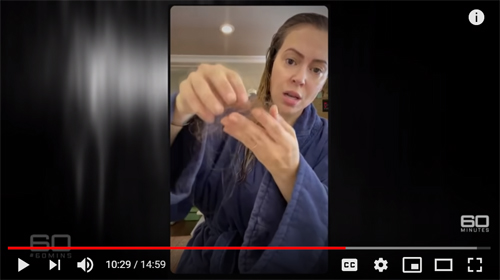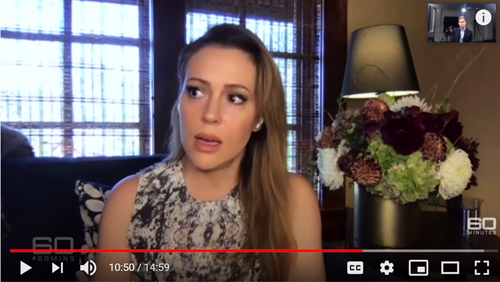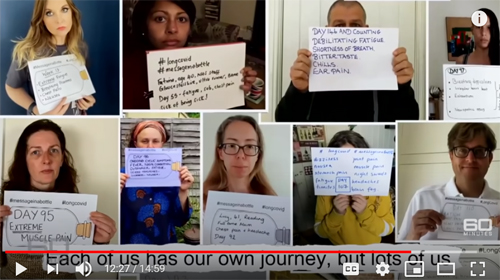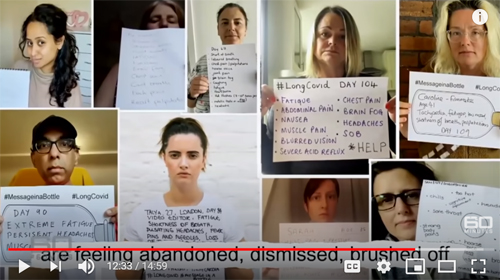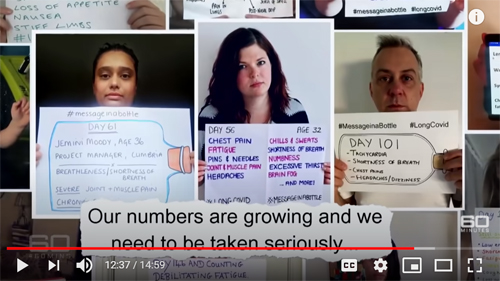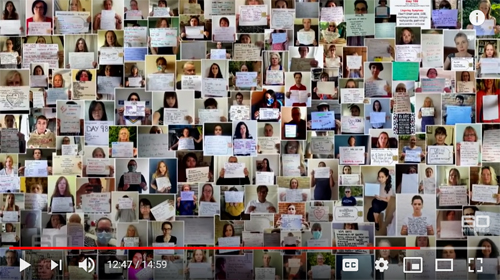Letter from Select Subcommittee on the Coronavirus Crisis, James E. Clyburn, Chairman, to The Hon. Alex M. Azar, II, Secretary, Department of Health and Human Services and Dr. Robert R. Redfield, Director, Centers for Disease Control and Prevention
December 21, 2020
One Hundred Sixteenth Congress
Congress of the United States
House of Representatives
Select Subcommittee on the Coronavirus Crisis
2157 Rayburn House Office Building
Washington, DC 20515-6143
Phone (202) 22504400
https://coronavirus.house.gov
James E. Clyburn, Chairman
Maxine Waters
Carolyn B. Maloney
Nydia M. Velazquez
Bill Foster
Jamie Raskin
Andy Kim
Steve Scalise, Ranking Member
Jim Jordan
Blaine Luetkemeyer
Jackie Walorski
Mary E. Green, M.D.
December 21, 2020
The Honorable Alex M. Azar II
Secretary
Department of Health and Human Services
200 Independence Avenue,
S.W. Washington, D.C. 20201
Dr. Robert R. Redfield
Director
Centers for Disease Control and Prevention
395 E Street, S.W., Suite 9100
Washington, D.C. 20201
Dear Secretary Azar and Director Redfield:
The Select Subcommittee on the Coronavirus Crisis issued subpoenas today compelling you to produce all of the documents requested by the Select Subcommittee on September 14, 2020, relating to efforts by political appointees at the Department of Health and Human Services (HHS) to interfere with scientific work conducted by career officials at the Centers for Disease Control and Prevention (CDC). The subpoenas require you to produce a full and unredacted set of these documents by December 30, 2020.
The subpoenas were necessary because the Select Subcommittee’s investigation has revealed that efforts to interfere with scientific work at CDC were far more extensive and dangerous than previously known. Documents recently obtained by the Subcommittee show that over a period of four months, as coronavirus cases and deaths rose around the country, Trump Administration appointees attempted to alter or block at least 13 scientific reports related to the virus. These appointees targeted reports that provided evidence of the virus’s “early spread” across the country and “massive spread” this summer, which they believed sent “the wrong message” about the Administration’s policies. These appointees also drafted rebuttals aimed at undercutting CDC’s credibility and providing “very re-assuring information … for the White House.” Top political officials at HHS and CDC not only tolerated these efforts, but in some cases aided them—even after a senior career official warned that CDC’s scientific writing “needs to remain an independent process” and that the Administration’s attempts to influence these reports violated “long-standing policy.”
Documents show that HHS officials also attempted to muzzle CDC scientists by retaliating against career employees who provided truthful information to the public and targeting CDC staff with what one employee described as a “pattern of hostile and threatening behavior.”
These unprecedented efforts to influence CDC’s reports and bully its staff occurred at the same time HHS officials were privately advocating for a “herd immunity” strategy to spread the coronavirus widely among Americans, as the Select Subcommittee revealed in a December 16, 2020, staff memorandum.1 The Select Subcommittee needs to obtain all the documents sought in its September 14 request to understand who in the Trump Administration was responsible for this political pressure campaign, whether it was intended to cripple the nation’s coronavirus response in a misguided effort to achieve herd immunity, and what steps must be taken to end this outrageous conduct and protect American lives.
HHS has made clear that it will not provide a timely and complete response to the Select Subcommittee’s requests on a voluntary basis. Although the Select Subcommittee has made extensive efforts to obtain cooperation over the last three months, HHS continues to withhold responsive documents related to senior HHS and CDC officials. Evidence obtained by the Select Subcommittee last week indicates that Director Robert Redfield instructed employees to destroy a key document in the Select Subcommittee’s investigation, raising the possibility that other evidence may have been hidden or destroyed. HHS is also blocking the Select Subcommittee from interviewing five key witnesses, including Director Redfield, his principal deputy, and his acting chief of staff.2 For these reasons and those set forth below, the Select Subcommittee had no choice but to issue subpoenas compelling production of documents that have been withheld by HHS and CDC since September.
I. THE ADMINISTRATION’S CAMPAIGN TO INTERFERE IN CDC SCIENTIFIC REPORTS WAS MORE EXTENSIVE AND DANGEROUS THAN PREVIOUSLY KNOWN
Spearheaded by HHS Assistant Secretary for Public Affairs Michael Caputo and his Senior Advisor, Paul Alexander, efforts to influence or block CDC’s Morbidity and Mortality Weekly Report (MMWR) and other scientific publications went on for months and involved numerous high-level officials at CDC and HHS.
In a December 7, 2020, transcribed interview with Select Subcommittee staff, MMWR Editor-in-Chief Charlotte Kent confirmed that Dr. Alexander contacted her directly on numerous occasions to pressure her to make changes to MMWRs and to seek a larger role in the review process, in violation of longtime CDC and HHS policy to maintain the independence of these reports. She said she “felt it was important to respond” to his demands, but said that Dr. Alexander’s efforts, if successful, would have impacted the integrity of CDC’s scientific work. She explained, “if we chose to collaborate with Dr. Alexander, there could be a perception that that was influencing the scientific integrity of MMWR, and that was something that we were not going to do.”3
HHS has falsely claimed that Dr. Kent’s testimony shows that there was no political interference with MMWRs.4 To the contrary, as demonstrated by the transcript, Dr. Kent stated that she was “surprised” that Dr. Alexander sought to make changes to MMWRs, that his efforts were “not typical,” and that she raised the issue to her superiors’ attention “because it was an unusual situation.”5 Dr. Kent’s testimony and documents obtained by the Select Subcommittee show that she and other career officials were forced to fend off more than a dozen attempts to influence CDC’s scientific publications, and in some cases were instructed to make changes recommended by political officials. To the extent career staff were successful in limiting the damage, as Dr. Kent stated she was, that is a testament to the career staff’s integrity and resilience—not an indication that the Trump Administration’s political pressure tactics were appropriate or scientifically sound.
Former CDC Chief of Staff Kyle McGowan, who was at CDC when this pressure campaign began, recently confirmed that HHS appointees attempted to interfere in the publication of MMWRs, saying that Dr. Alexander “absolutely put pressure on the CDC on different guidance documents, on MMWRs,” and that these efforts “delayed MMWRs from getting them out as quickly as possible to be effective.”6
A. Despite Warning from Career Staff, HHS Attempted to Interfere with More than 12 Coronavirus Reports from May to September 2020
Documents reveal that efforts by HHS officials to interfere in CDC scientific reports, with the apparent goal of helping President Trump politically, began in May 2020 and continued through mid-September—despite an early warning from a career official that these actions violated longstanding policies intended to protect the scientific independence of CDC reports.
On May 22, 2020, Dr. Alexander wrote to HHS Deputy Assistant Secretary Bill Hall, the top career official in HHS’s Public Affairs Office, requesting that CDC alter the title and contents of an upcoming MMWR, entitled, “Evidence for Early Spread of COVID-19 Within the United States, January – February 2020.” Dr. Alexander explained that he had discussed the matter with Mr. Caputo and wanted to insert language praising what he called the Administration’s “[s]trong mitigation and containment measures.” He also asked to revise the report’s title, which he claimed was “misleading and little inflamming [sic]” because it indicated that “COVID was in US prior to when it was first detected etc.”7 Ultimately, CDC did not add the reference to the Administration’s actions but did change the report’s title in a manner that downplayed the report’s key finding. The revised title was: “Evidence of Limited Early Spread of COVID-19 Within the United States, January–February 2020.”8
On June 5, 2020, Dr. Alexander wrote to Mr. Caputo, Mr. Hall, and other HHS officials seeking to insert language into another CDC study related to coronavirus prevention. Mr. Hall wrote back:
The MMWR is a peer-reviewed journal no different than, say, JAMA or NEJM, and, like those journals, the text of articles is negotiated between the submitting authors and the MMWR editorial team. The article has already been published and been distributed. [The Office of the Assistant Secretary for Public Affairs] is not a science or medical program office and, as matter of long-standing policy, we do not engage in clearing scientific articles, as that arena needs to remain an independent process.9
Despite receiving this admonishment from a senior career official, Dr. Alexander began reaching out to CDC officials directly, attempting to alter the contents of at least 11 other scientific reports, including the following:
• A July 3 MMWR regarding characteristics of adult inpatients and outpatients with coronavirus;10
• An MMWR regarding hydroxychloroquine prescription trends, originally scheduled for release on June 30 but not published until September 4;11
• A July 14 MMWR on the use of cloth face coverings among adults during the pandemic;12
• A July 24 MMWR regarding underlying medical conditions associated with the risk of severe COVID-19;13
• A July 31 MMWR regarding efforts to mitigate coronavirus transmission during the April 7 primary election in Milwaukee, Wisconsin;14
• A July 31 MMWR regarding vaccination among children in New York City during the pandemic;15
• An MMWR scheduled for early release on July 29 regarding a coronavirus outbreak among children attending an overnight summer camp in Georgia, which was delayed until after Director Redfield testified before the Select Subcommittee;16
• An August 14 MMWR, originally scheduled for release on August 7, regarding hospitalization rates for children diagnosed with the coronavirus;17
• An August 14 MMWR, originally scheduled for release on August 7, regarding multi-inflammatory syndrome in children with coronavirus;18
• A September 4 MMWR regarding coronavirus outbreaks at four summer camps in Maine; and19
• A September 18 MMWR on coronavirus-associated deaths among children, adolescents, and young adults.20
Hydroxychloroquine Report
On June 29, 2020, Director Redfield’s Senior Advisor Nina Witkofsky obtained a copy of a planned June 30 MMWR on hydroxychloroquine and provided it to Mr. Caputo and Dr. Alexander.21 The CDC study found that hydroxychloroquine prescriptions increased 80-fold between March 2019 and March 2020.22 Hydroxychloroquine—which President Trump lauded as a “miracle” treatment for the coronavirus—received Emergency Use Authorization by the Food and Drug Administration to treat coronavirus in March 2020, but this authorization was revoked in June after it was determined that the potential harms of the drug outweighed the benefits.23
Less than an hour after he received a copy of this MMWR, Dr. Alexander sent an email to Mr. Caputo and Ms. Witkofsky, saying, “Hi Michael, is this not the article we were shelving?”24 The following day, a staffer in Mr. Caputo’s office wrote to Ms. Witkofsky, copying Dr. Alexander, making clear that political officials intended to make changes to the MMWR:
I am reviewing the MMWR on hydroxychloroquine you sent to Michael yesterday. There are quite a few edits on it. I forwarded that Word Document to Paul who is going to look over the MMWR. If you could please keep Dr. Paul Alexander, who is CC’d here, and myself in the loop on this MMWR, it would be much appreciated.25
HHS officials went so far as to draft a rebuttal attacking this MMWR. This document—which does not appear to have been published—argued erroneously that the MMWR “presents factual information with an agenda” and could “prevent the news from giving the proper coverage of a true ‘miracle cure.’” The rebuttal also asserted that “there is no academic value in this study whatsoever.”26 The op-ed called the authors of the MMWR “a disgrace to public service” and accused them of being “self-aggrandizing, looking to grab headlines” and “ignoring and [sic] the Americans currently dying from COVID-19.”27 When asked about this rebuttal document during her interview, Dr. Kent stated that she was not aware of it at the time but that the rebuttal “could undermine confidence in CDC and in the quality of science that is in MMWR.”28 The MMWR, originally scheduled for release on June 30, was published on September 4.29 It is not clear whether the final report included edits from HHS.
Report on Outbreak at Georgia Summer Camp
On July 26, 2020, Dr. Kent circulated a summary of a draft report on a coronavirus outbreak at a Georgia summer camp to a group of HHS and CDC officials. Dr. Alexander responded hours later with an eight-point list of questions and comments, asserting that the report would undermine the Administration’s push to quickly reopen schools. He wrote:
This CDC MMWR also concluded by saying in spite of adhering to CDC guidance, the spread was massive, with elevated attack rates. … This confuses me because you, in fact, are CDC and the piece reads as if CDC’s own guidance is not adequate and that even if a school or similar implements most recommended strategies to prevent transmission, that there will still be massive spread. I find it incredible this piece would be put out the way it is written at a time when CDC and its leader Dr. Redfield is trying to showcase the school re-open guidance and the push is to help schools re-open safely. It just sends the wrong message as written and actually reads as if to send a message of NOT to re-open.30
The following morning, on July 27, HHS officials asked to see a full copy of the report.31 Later that day, CDC Principal Deputy Director Anne Schuchat instructed Dr. Kent to remove the opening sentence of the abstract, which stated that understanding transmission of the virus among children “is critical for developing guidance for schools and institutes of higher education.”32
The revised abstract eliminated this reference to schools and colleges, replacing it with a sentence asserting that “[l]imited data are available about transmission” of the coronavirus among youth. In an email to Dr. Alexander, copying Director Redfield and others, Dr. Kent explained:
In response to thoughtful comments from CDC leadership and you, the opening sentence of Georgia’s report has been reframed. The opening sentence was the only reference to schools or institutions of higher learning in the report, and reference to them has been removed.33
Director Redfield also inserted two changes to the MMWR, although HHS has not provided the Select Subcommittee with documentation of these changes.34
The initial release of the MMWR, originally set for July 29, was delayed to July 31 at the direction of Director Redfield and HHS.35 Dr. Kent informed the Select Subcommittee that she understood this delay was due to Director Redfield’s scheduled testimony before the Select Subcommittee on the morning of July 31, adding that “there were some very important things that they wanted to convey during that meeting.”36 At the July 31 hearing, Director Redfield testified of the “very significant public health consequences of the school closure,” but did not discuss the CDC study, which found that the virus spread widely among children at the Georgia summer camp.37
At the same time they sought to influence the text of the MMWR, HHS officials also coordinated to rebut the report’s key finding that children can transmit the virus to each other and to adults. On July 27, Dr. Alexander wrote to Mr. Caputo, Ms. Witkofsky, and HHS Senior Advisor Brad Traverse regarding a rebuttal piece he was asked to draft:
Hi Michael, as requested, here is the piece to rebut that poor CDC MMWR…I am not sure where it can be published but this has very re-assuring information and even for the White House. You can now tweak this how you wish.38
The op-ed, which went through several drafts at HHS but does not appear to have been published, sought to downplay the risk of children transmitting the coronavirus and reaffirm the Administration’s position that schools should quickly and fully reopen.39
HHS’s attacks on this MMWR continued the following week. On August 8, 2020, Dr. Alexander demanded that Director Redfield and Mr. Caputo intervene to alter this report, along with a second MMWR, or stop the publication of all MMWRs.40 As described in my December 10, letter, Dr. Kent told the Select Subcommittee she was ordered to delete this email, and that she understood the direction to delete the email came from Director Redfield.41
Although Director Redfield did not accede to Dr. Alexander’s demand to alter the report or halt publication of all MMWRs, Dr. Alexander continued to reach out to Dr. Kent seeking to influence other MMWRs following this incident.42
B. Assistant Secretary for Public Affairs Attempted to Retaliate Against CDC Officials
Evidence obtained by the Select Subcommittee shows that Mr. Caputo aggressively bullied and retaliated against CDC staff who provided truthful information to the press without his permission and that Director Redfield was aware of this behavior.
Retaliation for Revealing Advertising Campaign
In June 2020, a CNN reporter wrote to Mr. Caputo, asking whether “Operation Warp Speed is working on a vaccine education campaign.” Mr. Caputo refused to confirm the story, claiming it was “wildly incorrect.” The reporter then followed up, noting that a career CDC official had referred her to Mr. Caputo and indicated that Mr. Caputo himself was “spearheading” the campaign.43
Mr. Caputo then excoriated the career official for providing truthful information to CNN, writing, “In what world did you think it was your job to announce an Administration public service announcement to CNN?” He later followed up, stating, “We will discuss this on a teleconference tomorrow. I want your HR representative in attendance.” Mr. Caputo added Director Redfield to the exchange, writing, “I’m adding Dr Redfield back in this email exchange. Do not remove him again.”44
Retaliation for Discussing Removal of Hospital Data Collection from CDC
In July 2020, a senior CDC scientist was interviewed by NPR about the Administration’s decision to strip CDC of its longstanding role in collecting hospital data—which experts warned could cause researchers, reporters, and the public to lose access to crucial data needed to combat the pandemic. The scientist, Dr. Daniel Pollock, explained in the interview that CDC had a successful “track record” and “expertise” in collecting this data.45
When Mr. Caputo learned the interview occurred without his personal permission, he called the action “reckless,” and demanded to know the name of the CDC press officer who arranged it, warning CDC’s senior staff: “If you disobey my directions, you will be held accountable.” Following Mr. Caputo’s outburst, CDC Deputy Communications Director Kate Galatas informed Mr. Caputo that the incident was caused by a mistake and that CDC was planning to issue the employee a “formal letter of reprimand.” She then sought assistance from Director Redfield and his Chief of Staff for assistance in handling Mr. Caputo’s demands, stating: “Please intervene and have someone else at CDC send the appropriate program person’s name to Mr. Caputo … I respectively request that you not require me to do so.” 46
Ms. Galatas also wrote to HHS’s Deputy Chief Counsel about Mr. Caputo’s conduct, saying, “I see this as a pattern of hostile and threatening behavior directed at me, Michelle [Bonds, Director of CDC’s Division of Public Affairs], and communication staff at CDC.”47
C. Senior Administration Officials Allowed Dangerous Interference by Mr. Caputo and Dr. Alexander to Continue Until it Became Public
Although HHS and CDC officials have recently tried to distance themselves from Mr. Caputo and Dr. Alexander, emails show Trump Administration officials were aware of their conduct for months but took no action until the press became aware of this behavior and the Select Subcommittee launched an investigation.
For example, Ms. Witkofsky—a top advisor to Director Redfield who became Acting Chief of Staff in August 2020—worked closely with Mr. Caputo and Dr. Alexander beginning in June 2020 to facilitate their efforts to obtain and review MMWRs prior to their release.48 Both Director Redfield and Ms. Witkofsky were copied on multiple emails in which Dr. Alexander attempted to alter MMWRs and Mr. Caputo bullied CDC career staff.49
However, no action was taken against Mr. Caputo and Dr. Alexander until their disgraceful conduct became public. On September 9, 2020, a reporter from Politico reached out to HHS seeking comment on concerns regarding Dr. Alexander.50 Two days later, on September 11, Ms. Witkofsky directed Dr. Kent to remove Dr. Alexander—but not Mr. Caputo—from the distribution list for MMWR summaries.51 That same day, Politico published an article revealing publicly for the first time that Dr. Alexander had tried to change and block MMWRs.52
On September 14, the Select Subcommittee launched this investigation and requested to interview both Mr. Caputo and Dr. Alexander, among others, the following week. Two days later, on September 16, the Department announced that both officials would leave their roles, with Mr. Caputo taking a leave of absence and Dr. Alexander exiting the Department entirely.53
II. TRUMP ADMINISTRATION’S REFUSAL TO COOPERATE
As explained in my December 10, 2020, letter to you, the Select Subcommittee launched this investigation more than three months ago, yet HHS has repeatedly refused to provide key documents and witnesses that the Select Subcommittee needs to complete its inquiry.
A. Refusal to Voluntarily Produce Documents and Witnesses
The Select Subcommittee’s September 14, 2020, letter requested transcribed interviews with seven HHS and CDC officials beginning on September 22, and the production of documents on September 28.54
On September 18, HHS responded, claiming the Select Subcommittee’s requests were “pretextual” and demanding “additional clarity” on how the request “satisfies the requirement that oversight inquiries be conducted pursuant to a valid legislative purpose.”55
pretextual: constituting a pretext; dubious or spurious; denoting or relating to a minor offense that enables authorities to detain a suspect for investigation of other matters.
The Select Subcommittee responded on September 22, explaining that the Select Subcommittee’s investigation is clearly authorized by House Resolution 935, that ensuring Americans have access to accurate public health information during the pandemic is an issue that is amenable to legislation, and that evidence of ongoing political interference at HHS made the investigation even more urgent.56
HHS wrote back on September 25, claiming again that the Select Subcommittee’s requests were “pretextual” and demanding answers to a list of logistical questions.57 Select Subcommittee staff responded to HHS’s questions by email and asked the Department to confirm dates for the interviews.58 In response, HHS staff claimed on September 28 that the Department was “assessing witness availability to sit and prepare for interviews.”59 On October 2, Secretary Azar confirmed in sworn testimony before the Select Subcommittee that HHS would soon make documents and witnesses available, stating:
Our staffs are working to secure the agreements on the procedures to make that happen. We want to make that happen. … I think they’re in the final stages of getting things arranged.60
However, instead of moving forward with interview arrangements or document production, HHS staff sent an email to Select Subcommittee staff on October 7 with a series of new demands, stating, “Until these outstanding issues and processes are resolved, it is not appropriate to commit to specific dates for interviews.” HHS staff also indicated that the Department planned to withhold responsive documents from the Select Subcommittee, writing that HHS “will be conducting document searches and reviewing responsive materials” in advance of any interviews but “these document pulls are solely for the Department’s use,” and stating, “The Subcommittee should not expect to receive any documents before the transcribed interviews occur.”61 Select Subcommittee staff asked HHS to confirm dates for interviews and a schedule for document production on October 14 and October 21, but HHS refused.
B. Inadequate Document Production Following Subpoena Warning
On October 22, 2020, the Select Subcommittee wrote to HHS, warning that if the Department did not voluntarily comply, the Select Subcommittee would be forced to consider issuing subpoenas.62 On October 27, HHS responded, again questioning the premise of the Select Subcommittee’s investigation and refusing to commit to a production schedule.63 After further negotiation, HHS agreed on October 29 to make five witnesses available for transcribed interviews—excluding Mr. Caputo and Dr. Alexander, who were no longer serving in their previous roles—and to make a full document production by November 23, writing:
HHS will target November 9 for a complete production of documents for the five named custodians, as well as others whom we have identified to date. … We will also commit to target November 23 for a complete production for the remaining political appointees.64
HHS did not meet the agreed upon production schedule. Instead, the Department slowly produced a fraction of the requested documents, along with thousands of pages of repetitive, non-responsive, and redacted materials. For example:
• HHS agreed to produce documents from Mr. Azar, Director Redfield, Mr. Caputo, Dr. Alexander, and Mr. Traverse by November 9, but the Department’s actual productions have included a substantial production of emails from just one of these five custodians—Dr. Alexander.
• Although HHS has produced just over 15,000 pages, thousands of these pages consist of duplicative copies of public reports and documents that are entirely non-responsive—including some that are more than a year old and predated the coronavirus pandemic entirely.65
• Dozens of pages are entirely redacted and marked “withheld as privileged”—without any indication of the basis for the redaction or the privilege being asserted. In one instance, HHS completely redacted more than 50 consecutive pages without any further explanation.66
HHS has refused to agree to any timeframe to complete its production, notwithstanding the Department’s previous commitment to produce all documents by November 23.
C. Abrupt Cancellation of Interviews Following Troubling Testimony by Career Official
HHS further obstructed the Select Subcommittee’s inquiries by abruptly canceling four transcribed interviews the Department had previously agreed to conduct during the week of December 7, 2020. HHS canceled these interviews just hours after Dr. Kent revealed in her interview that Director Redfield may have ordered staff to delete key evidence of political interference.67
The Department claimed that it canceled these interviews because Select Subcommittee counsel infringed upon the attorney-client privilege by asking Dr. Kent whether, in addition to being instructed to delete a key email, she was instructed to withhold any other information from Congress. This claim has no basis whatsoever. Given the clear evidence that CDC officials were instructed to delete evidence, the Select Subcommittee has a strong interest in determining whether anyone at HHS or CDC ordered staff to obstruct this investigation. Such obstruction is potentially illegal and is not protected by any privilege.68
D. Final Warning Letter and HHS’s Refusal to Comply
On December 10, 2020, I wrote to both of you requesting full compliance with the Select Subcommittee’s outstanding document requests by December 15, and warned that if you did not comply, I would have no choice but to issue subpoenas to obtain the remaining documents.69 The letter also asked you to reschedule the four canceled interviews. Finally, in light of the new evidence that Director Redfield ordered CDC officials to destroy evidence of political interference, the letter requested additional documents by December 15 and a transcribed interview with Director Redfield on December 17.
These deadlines have now passed, and HHS did not comply with any of the Select Subcommittee’s requests. The Department’s document production remains woefully incomplete. The Department has not rescheduled any of the canceled interviews with senior CDC officials.
HHS also refused to make Director Redfield available for a transcribed interview, claiming that “an interview of Dr. Redfield is not warranted at this time.”70 Notably, however, HHS did not refute Dr. Kent’s statements that she was instructed to delete a key email, that she understood the instruction came from Director Redfield, and that the email was in fact deleted from her inbox by another individual. HHS also did not address the critical questions of whether Director Redfield or other political appointees ordered other staff at CDC or HHS to delete or conceal evidence of political interference. These are critical questions, and the Select Subcommittee intends to get answers.
III. ISSUANCE OF SUBPOENA
HHS and CDC have indicated their unwillingness to voluntarily cooperate with the Select Subcommittee’s investigation. Given the importance of the Select Subcommittee’s investigation and the continued obstruction by HHS, subpoenas are necessary.
The Select Subcommittee has a broad mandate to investigate “issues related to the coronavirus crisis,” including the “preparedness for and response to the coronavirus crisis,” “executive branch policies, deliberations, decisions, activities, and internal and external communications related to the coronavirus crisis,” and “cooperation by the executive branch” with the Select Subcommittee’s oversight. Political interference in scientific work necessary to respond to the coronavirus crisis is central to the Select Subcommittee’s mandate and could be the subject of legislation.
As the Supreme Court has recognized, “The congressional power to obtain information is ‘broad’ and ‘indispensable.’”71 The Court has also recognized that the “scope of the power of inquiry, in short, is as penetrating and far-reaching as the potential power to enact and appropriate under the Constitution.”72
For the reasons described in this letter, I have issued subpoenas to both of you to compel production of all the documents that were first requested by the Select Subcommittee on September 14, 2020. The subpoenas, which were shared with the Ranking Member more than 48 hours ago, require you to produce a full and unredacted set of these documents by December 30, 2020.
Please note that the Select Subcommittee also expects you to provide a complete response to the requests in our December 10, 2020, letter. If you fail do so, additional subpoenas may be necessary.
Sincerely,
__________________________
James E. Clyburn
Chairman
cc: The Honorable Steve Scalise, Ranking Member

